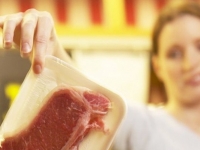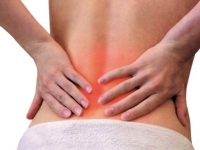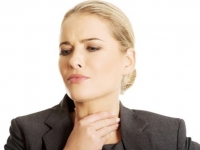Food poisoning in early spring: what is important for everyone to know
 Early spring is not a season for intestinal infections and food poisoning, it would seem. We observe a surge in the incidence of acute intestinal infections, the so-called “dirty hands diseases” during the hot season. However, with the onset of heat, the risk of poisoning with poor quality or poorly processed foods increases dramatically. The first picnics in nature and poorly roasted meat, insufficiently washed early vegetables and greens, the hands with which we take food, can result in food poisoning. Also, the source of infection – the same hepatitis A can be poor-quality water. Therefore, it’s time to remember how to avoid food infection and what to do in this case.
Early spring is not a season for intestinal infections and food poisoning, it would seem. We observe a surge in the incidence of acute intestinal infections, the so-called “dirty hands diseases” during the hot season. However, with the onset of heat, the risk of poisoning with poor quality or poorly processed foods increases dramatically. The first picnics in nature and poorly roasted meat, insufficiently washed early vegetables and greens, the hands with which we take food, can result in food poisoning. Also, the source of infection – the same hepatitis A can be poor-quality water. Therefore, it’s time to remember how to avoid food infection and what to do in this case.
Causes of food poisoning
The main reason for the emergence of food poisoning is microorganisms in the human body that have multiplied on products and various toxins. Depending on the cause of the poisoning, food poisoning or intoxication develops. These can be E. coli, salmonella, staphylococcus, citrobacteria, etc. The warmer it gets outside and the higher the air temperature – the more favorable the conditions for the fastest possible breeding of bacteria.
It is possible to get infected with products that people have been in contact with: elemental non-observance of personal hygiene often leads to food poisoning. The man forgot to wash his hands after the street, visiting the toilet, took the bread, ate it and … poisoned. Also, food poisoning is caused by the use of unboiled milk, raw water, poorly heat-treated meat, insufficiently washed vegetables and fruits, as well as products that have expired.
Food poisoning symptoms and first aid
Usually, the first symptoms appear 2-3 hours after a person has eaten low-quality food or bacteria have entered his stomach. However, this period may take a day. Food poisoning is manifested by abdominal pain, nausea, vomiting, diarrhea (diarrhea – up to 10 times or more per day). The body temperature can rise above 38 degrees, the appetite disappears, the person feels weak, the skin becomes dry and pale. Vomiting and diarrhea lead to rapid dehydration of the body, so a person needs large amounts of fluid, restoration of water-salt balance and adsorbents that will help remove toxins from the body.
If there is no vomiting, then it is necessary to cause and wash the stomach, take activated charcoal or other adsorbents. With repeated vomiting and diarrhea, adsorbents and mineral water alone are indispensable, you need to call a doctor or emergency medical care. You will need to find out what type of pathogen caused the poisoning in order to choose the right therapy. Also, the victim must urgently restore the water-salt balance, remove toxins, remove intoxication – for this you need to enter a number of medications intravenously, which at home you will not do correctly yourself.
How to prevent food poisoning
Prevention of intestinal infections and food poisoning is very simple:
Observe rules of personal hygiene.
Thermally process food, wash vegetables and fruits, pour boiling water over them, do not eat spoiled food, rotted vegetables and fruits, etc.
Observe the terms and conditions of food storage, do not store already cooked food with raw, separately carry in a grocery bag or package meat, eggs, vegetables and other products that are still to be thermally processed and ready-to-eat bread, cheese, etc.
If you have experienced food poisoning, then strictly follow the doctor’s prescriptions and diet, so as not to cause aggravation (because the stomach and intestines are still inflamed and spicy, fatty foods, alcohol can provoke pain, vomiting, etc.).



